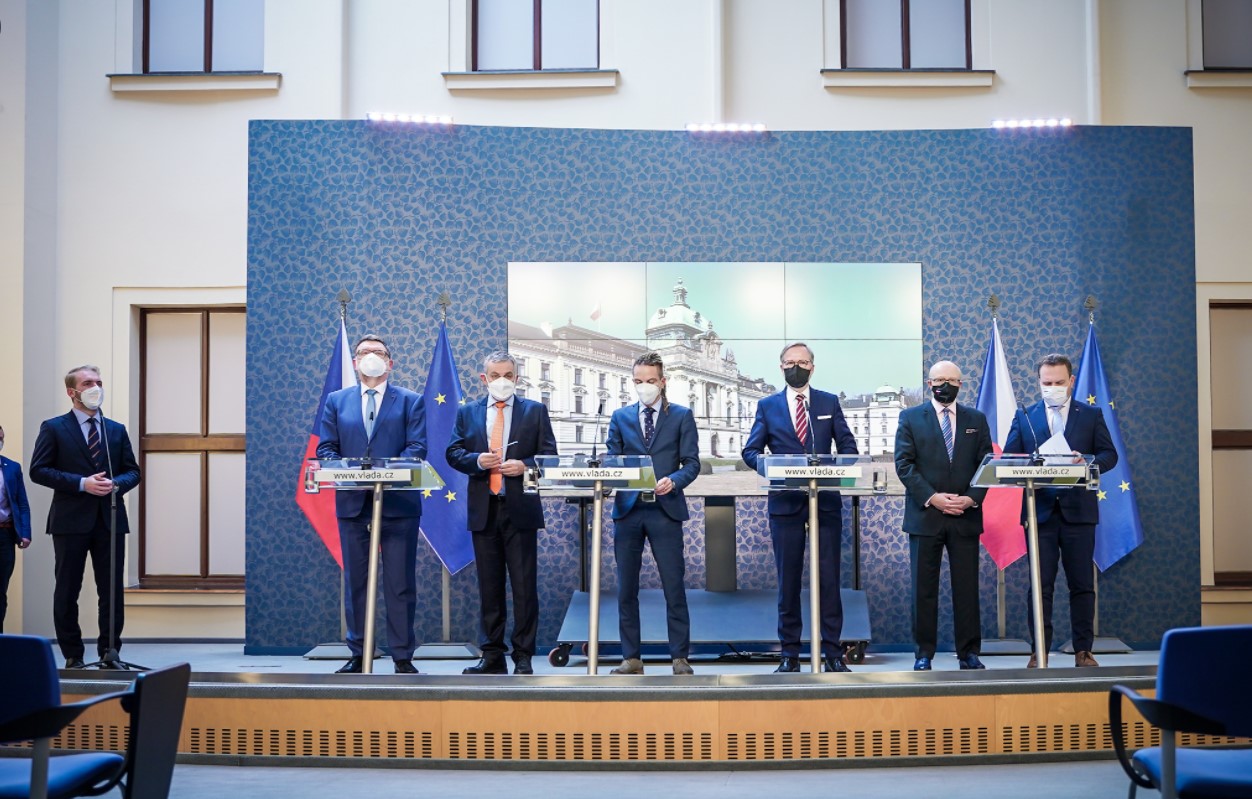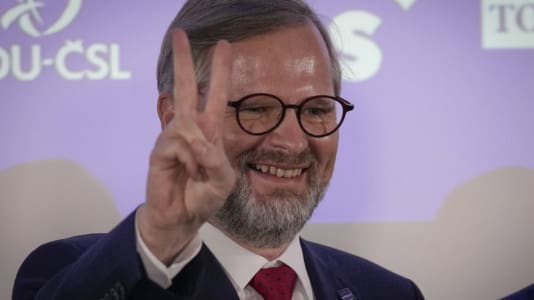For several weeks now, Petr Fiala’s government has been investing massive political capital in a pandemic law that is incomparably more restrictive than the current one, which expires on Feb. 28.
It would allow the government significantly more strict restrictions and interference with people’s freedom. A debacle in the Senate also cost the government a lot on Friday. Although the governing coalition has a comfortable majority in Senate, the upper house rejected the restrictive law with very sharp criticism and returned it to the Chamber of Deputies.
The government is now facing a decision on what to do next. It has two options: either by a majority of 108 votes to override the Senate and re-adopt the law in its original version, or withdraw it and let it be.
Many are now questioning why the government is pushing this restrictive legislation so hard and paying the huge political price. What is its motivation? The answer is hard to find, and it is not simple. It might lie in Petr Fiala’s answers in various interviews in which he talks about the pandemic law. He repeats one mantra over and over again: ‘We do not want to be like Andrej Babiš. We do not want to use the state of emergency.’
As if this was Fiala’s way of fulfilling his promise that instead of Babiš’s restrictions, the new coalition would rather recommend and trust the people than ban and restrict. Prime Minister Fiala is trying to create the impression that the pandemic regime in itself means fewer restrictions, while the state of emergency sets harsher constraints.
Fiala wants to be different than Babiš
Through the language of political marketing, Fiala tries to say that restrictions under the pandemic law are more lenient, and in doing so is conveying to the electorate that he is different from Babiš.
But that in itself is not true. Moreover, it’s not even good political marketing. People don’t care about which legislative tool is used to implement social restrictions. Restrictions are restrictions regardless of whether they are carried out under the crisis law, for which it is necessary to declare a state of emergency, or the pandemic law, or under the law on the protection of public health.
For citizens, they simply care about the social restrictions themselves, included government-mandated closures of schools, shops, and restaurants; the need for mandatory coronavirus testing or the production of vaccine certificates.
The reality is that the new pandemic law pushes the possibilities of restrictions a lot, so they are close to those under the state of emergency. It gives the power to declare restrictions to the government instead of the Chamber of Deputies, which issues restrictions under the state of emergency.
Both the state of emergency and the pandemic law are just legal frameworks. It always depends on what restrictions the government chooses within them. It would be far better if the Chamber of Deputies’ approval was necessary for the possibly huge limitations of freedom, such as the closure of schools or restaurants. The more safeguards, the better.
It is difficult to say why the government of Petr Fiala is so opposed to embracing the tool of the state of emergency. Should the epidemic worsen in any way, it has a comfortable majority in the Chamber of Deputies, and it would get its way.
With this agenda, Fiala’s government is bleeding politically for something for which it will not score any bonus points. On the contrary, it will lose a lot of them.
If this is an attempt at political marketing, trying to voice the idea that, “We are not like Babiš,” didn’t work out. The government is now just wasting energy, time and credibility.






